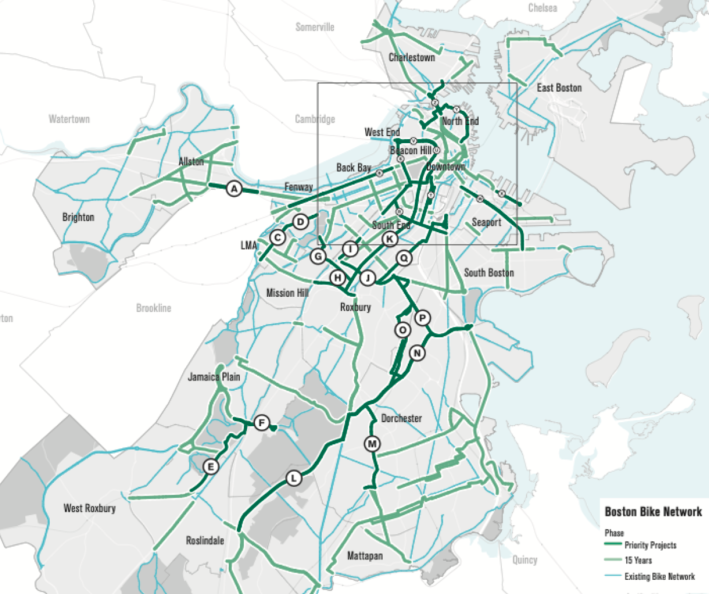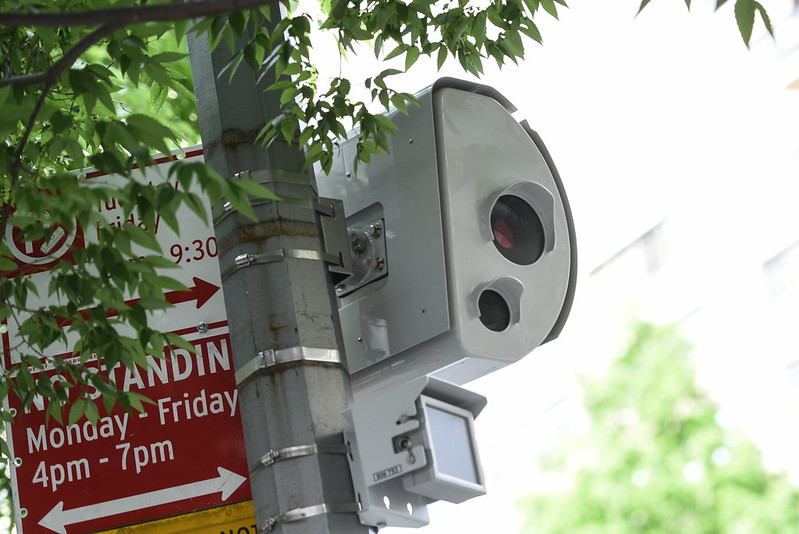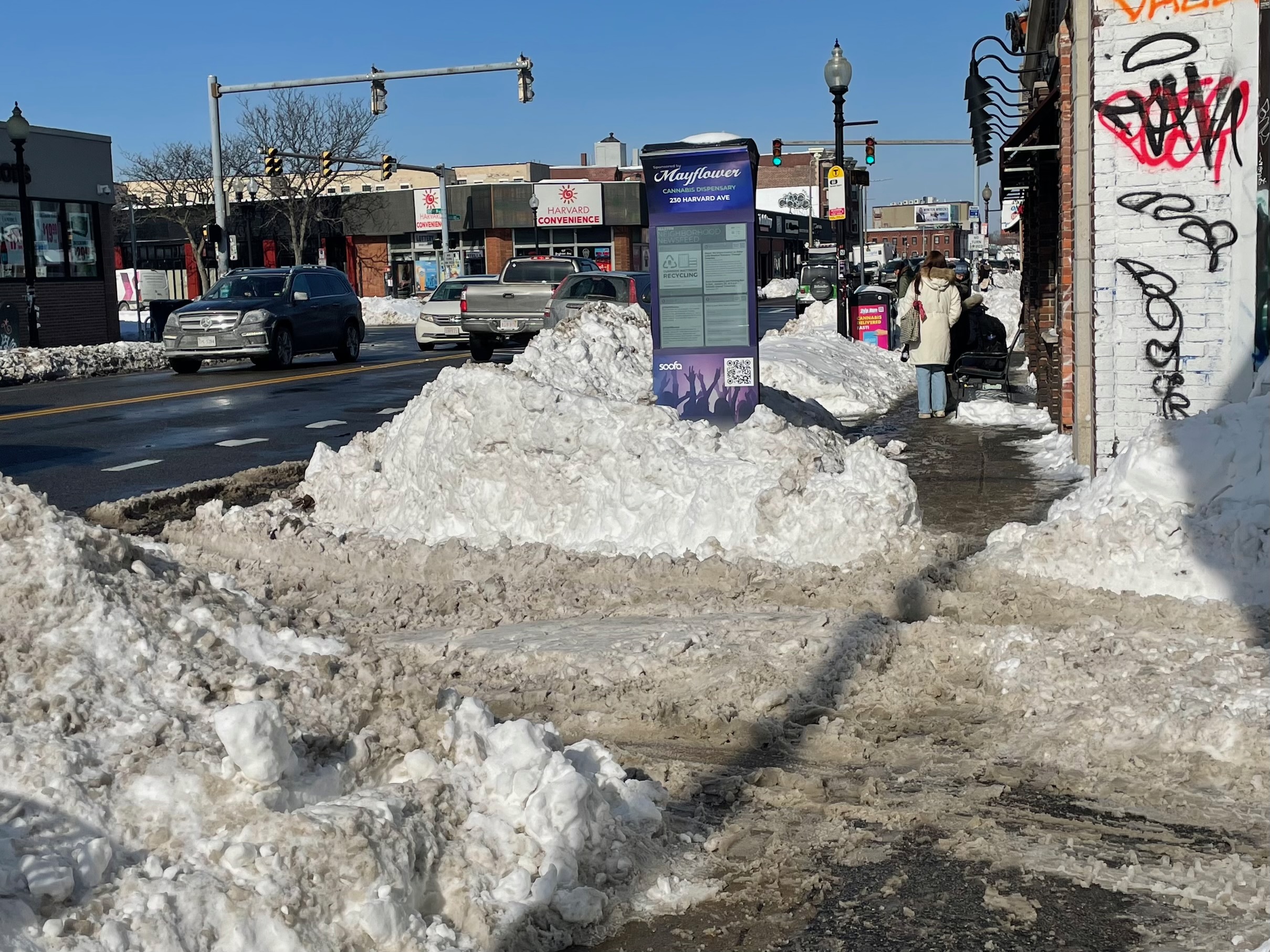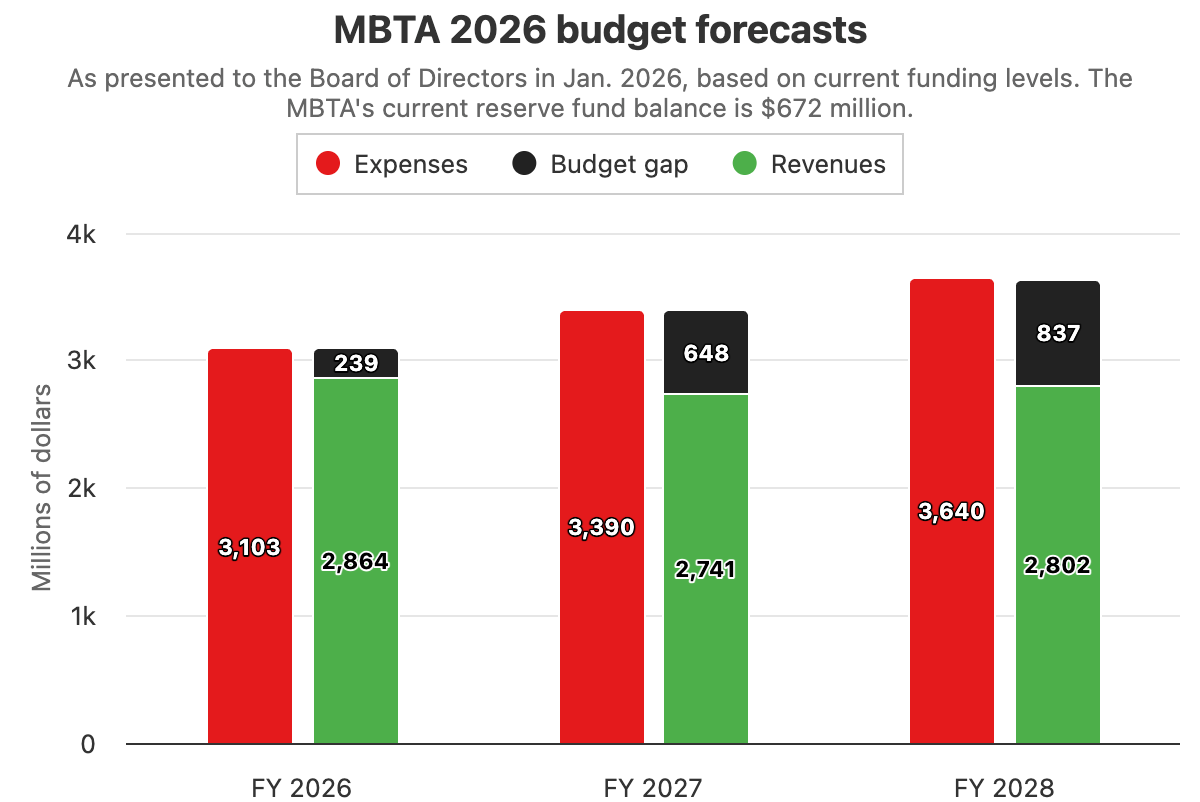The Wu administration's "30-day review" of recent street projects is complete, and this morning, the Mayor's press office shared a 9-page memo of its conclusions.
The memo, which bears the signature of Mike Brohel, Boston's Superintendent of Basic City Services, does not recommend removing any bus or bike lanes entirely, but it does request numerous tweaks to add more on-street parking and loading zones to facilitate more car traffic throughout the city.
We still don't know whose opinions these are
When StreetsblogMASS broke the news about the city's review at the end of February, the city refused to tell us which individuals and organizations would be allowed to weigh in.
Now that the review is apparently complete, the city remains secretive about whose opinions mattered enough for its consultation in this process.
Brohel writes that his project team "met with neighborhood groups and other local stakeholders, including residents and area business owners," but does not specify any of those stakeholders by name, with one exception.
The memo does cite a meeting with the Longwood Collective, an organization that represents the interests of about a dozen hospitals and educational institutions in the Longwood Medical Area, a neighborhood where private vehicles frequently block buses and emergency vehicles.
The Longwood Collective has acknowledged that more of its members will need to leave their cars and home and switch to public transit in order for the area to accommodate new development.
But according to Brohel, the Longwood Collective is expressing "concern" with proposed MBTA bus lanes on Brookline Avenue and Columbus Avenue, which would be prerequisites for the MBTA's plans to increase bus service into the neighborhood.
In the past month, hundreds of Boston residents have reached out to Mike Brohel to request a meeting and express their support for the city's existing bike and bus lane infrastructure.
Brohel's memo does not acknowledge that feedback.
Inflexible about flexible-post bollards
Brohel's memo also repeatedly expresses disdain for the flexible-post bollards that protect bike lanes from encroaching traffic.
"In many neighborhoods, residents have expressed concern that there are too many flex posts in the road, creating confusion and visual noise. The City has also struggled to properly maintain the increased number," writes Brohel.
In March, while the "30-day review" was allegedly just getting started, the City of Boston removed flexible-post bollards that had been protecting bikeways on Massachusetts Avenue in the Newmarket area, Summer Street in the Seaport, and on Arlington Street in Back Bay.
Brohel's memo recommends removing flexible-post bollards and replacing them with unspecified "alternative materials" on numerous streets, including Boylston Street in Back Bay, Massachusetts Avenue, and Western Ave. and Beacon Street in Allston.
Memo also acknowledges popularity of street safety improvements
The memo also corroborates a theme familiar to anyone who's attended a neighborhood meeting in Boston: residents overwhelmingly want safer streets and a better-connected network of safe bike routes, even if there's disagreement on the details of how they're implemented.
In another section of the memo, Brohel recommends that the city adopt a comprehensive plan for interconnected bike routes throughout the city, so that residents can better understand how individual street projects fit into a broader network.
"Every meeting had residents and business owners not just acknowledging their want for bike lanes in the city, but also ideas for streets where they would like to see them built," wrote Brohel.
The City of Boston did adopt a bike network plan in 2013, during the administration of Mayor Thomas Menino, but much of that plan is out of date. An interconnected network of protected bike lanes was also part of the 2017 GoBoston 2030 comprehensive transportation plan.

Both those plans recommended many of the city's more recent bike lane projects, including the Mass. Ave. South project and the Boylston Street protected lane.
What comes next
StreetsblogMASS has asked the Mayor's press office what the city plans to do with Brohel's memo and its recommendations. We'll update this story if and when we hear back from them.
In the meantime, several transportation advocacy organizations have had a chance to read the memo, and they're not impressed with the results.
Mandy Wilkens, communications manager for the Boston Cyclists Union, told StreetsblogMASS that the memo was "more indefinite and concerning than we expected from the Mayor's office."
Wilkens added that the recommendation to remove more protective barriers along bike lanes represents "an alarming direction for the city."
Catherine Gleason, co-executive director of the LivableStreets Alliance, took note of the fact that the review focused on subjective accounts instead of using well-established sources of data on safety, vehicle speeds, and mode shift.
"While this review is mainly about soliciting resident feedback, it's the city's job to incorporate that feedback into recommendations that balance allocating roadway space with key data-driven safety improvements," said Gleason.






